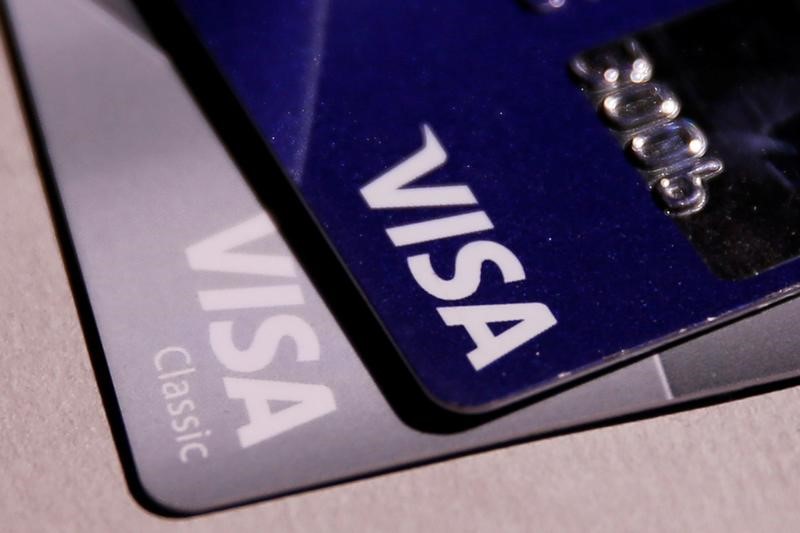(Reuters) - Visa Inc (N:V), the world's largest payments network operator, reported better-than-expected quarterly profit and revenue as more people made payments using its network.
The company, whose shares were up 3.4 percent in extended trading on Thursday, also affirmed its full-year profit and revenue forecasts.
"The battle between strong business fundamentals and unfavourable exchange rate shifts will drive our results as we look ahead to the rest of FY 2017", Chief Financial Officer Vasant Prabhu said on a conference call with analysts.
Visa, like MasterCard Inc (N:MA) and its other peers, has been trying to capture the Chinese market, which is dominated by state-run China UnionPay Co Ltd.
Visa remains committed to China in the long-term and plans to formally submit a license application in the country, Alfred Kelly said in his first earnings call since taking over as chief executive from Charles Scharf on Dec. 1.
Under Scharf, who had been Visa's CEO since 2012, the company's annual revenue jumped nearly 45 percent. Scharf also orchestrated the company's reunion with Visa Europe, which closed in June last year.
The acquisition helped Visa's total payments volume rise 39 percent to $1.8 trillion (1.43 trillion pounds) on a constant dollar basis in the first quarter, far exceeding the 11 percent growth in the year-ago quarter.
The United States accounted for nearly 45 percent of Visa's total payments volume in the quarter ended Dec. 31, while Europe accounted for nearly 20 percent.
Total processed transactions rose 44 percent to 27.3 billion, the company said. Cross-border volumes rose 140 percent on a constant dollar basis.
Visa's net income rose 6.6 percent to $2.07 billion, or 86 cents per Class A share, in the latest quarter.
Analysts on average were expecting a profit of 78 cents per share, according to Thomson Reuters I/B/E/S.
Visa's net operating revenue rose 25 percent to $4.46 billion, also exceeding analysts' expectations of $4.29 billion.
The San Francisco-based company's shares were up 3.4 percent at $85.13 after the bell. Up to Thursday's close, they had risen about 12 percent in the past one year.

MasterCard, the world's second-biggest payments processor, reported a lower-than-expected quarterly revenue last week, hurt by a rise in rebates, incentives and a strong U.S. dollar.